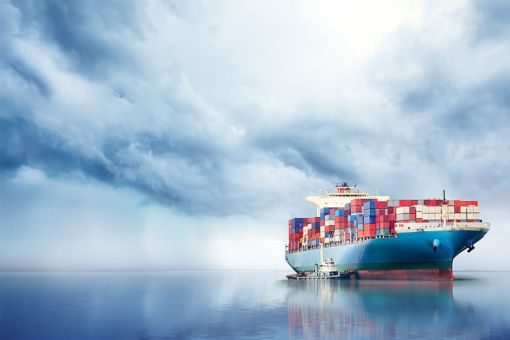As of 1 January 2023, many business entities in Germany will be subject to a new law: The Supply Chain Due Diligence Act (LkSG). Its abbreviated name is the Supply Chain Act. Initially, large business entities with more than 3,000 employees will be affected. According to the Federal Ministry of Labour and Social Affairs, that is about 600 companies. On 1 January 2024, the circle of users will be extended: Business entities with more than 1,000 employees will then have to comply with the provisions, i.e. almost 3,000 companies in Germany.
Adopted by the German Parliament on 11 June 2021, the Supply Chain Act is intended to strengthen the protection and respect of human rights by German business entities in many ways.
Our series: What you should know about the Supply Chain Act
Anchoring sustainability consistently in the value chain
The provisions in the LkSG provide the legal framework for due diligence obligations of business entities with regard to the observance of human rights and environmental protection along the entire supply chain. The law obliges business entities to undertake extensive due diligence regarding the prevention of and response to human rights violations and environmental pollution in the supply chain, including monitoring, documentation and adaptation of these preventive and remedial measures on a case-by-case basis.
Manufacturers and merchants need to know their own upstream suppliers at every stage of the value chain and select them according to sustainability criteria. They must monitor compliance with due diligence obligations and set up a complaints office, and they should make a human rights declaration. The Supply Chain Act is thus a way of consistently anchoring and establishing sustainability in the value chain.
Business entities are obliged to report on their efforts with regard to transparency, sustainability and fair working conditions. So far, there has only been a so-called duty of care without a legal framework.
Implementation of the Supply Chain Act
Once the law comes into force, evidence of sustainable and responsible corporate governance with regard to human rights and environmental protection (ESG in the broader sense) will be given even greater recognition. If the right measures are not taken in time, there is a risk of legal and financial consequences (fines, blocking of awards, ordering of measures by the competent authority), negative publicity, as well as reputational damage and liability.
We support you in meeting the requirements of the human rights and environmental due diligence obligations under the Supply Chain Act. Together, we develop customised approaches to solutions and support their implementation in operational practice.
How business entities act in a legally compliant manner
The legally compliant implementation of due diligence in supply chains is becoming a strategic, ongoing and individual process for business entities. However, all business entities face the challenge of having to fully record, assess and document any changes in their value network. For them, it is therefore important to identify binding requirements and individual concerns in a risk analysis in order to then develop and implement solution-oriented processes and to check whether these are effective.
Transparency along supply and value chains not yet adequately demonstrated
Comprehensive transparency is an important prerequisite for meeting the ESG criteria. In many business entities, this transparency is not yet or only partially available or is not fully utilised. Information about one’s own supply chains is often based on self-reporting by suppliers and long Excel spreadsheets.
Identification of internal and external risks is necessary
However, business entities need a complete overview of their entire supply chain and all suppliers involved in value creation, for example, with regard to whether they comply with all environmental and social standards. Especially for globally operating business entities, the challenges are increasing due to complex production conditions and globally interlinked economic activities. Business entities around the world rely on external providers, suppliers or other third parties to provide goods, materials and services and to manufacture and distribute their products.
That is why it will be essential for competitiveness in the future to identify both internal and external risks. On the other hand, comprehensive third-party risk management is required, which deals with possible fraud or abuse as well as warnings for suspicious activities.
Business entities must increasingly comply with ESG regulations
Changing customer demands, stricter regulations, increasing requirements from investors and stakeholders: The pressure on business entities to meet ESG requirements is growing. Even in light of other regulations such as the EU Taxonomy Regulation and the CSR Directive Implementation Act, ESG has gained considerable attention. Violations will lead to increasingly greater reputational damage and higher costs in the future.
Further Information
Your contacts
Julia Kristin Ruf
Partner, Performance & Strategy, Enterprise Performance
KPMG AG Wirtschaftsprüfungsgesellschaft
Eun-Hye Cho
Partnerin, Audit, Regulatory Advisory, Sustainability Reporting & Governance
KPMG AG Wirtschaftsprüfungsgesellschaft

Dr Thomas Uhlig*
Partner
KPMG Law Rechtsanwaltsgesellschaft mbH
+49 351 21294460
Connect with us
- Find office locations kpmg.findOfficeLocations
- kpmg.emailUs
- Social media @ KPMG kpmg.socialMedia
* Legal services are provided by KPMG Law Rechtsanwaltsgesellschaft mbH.







